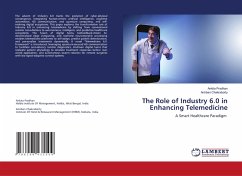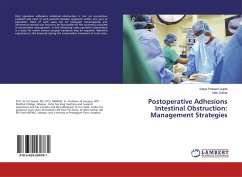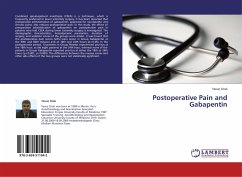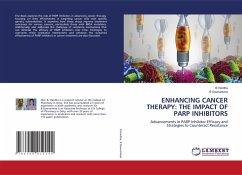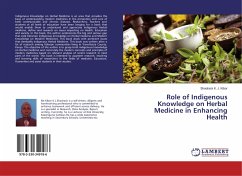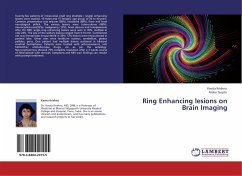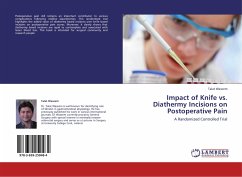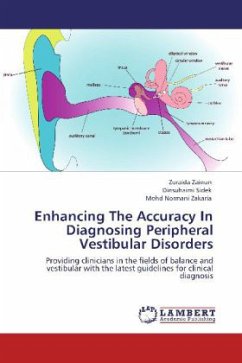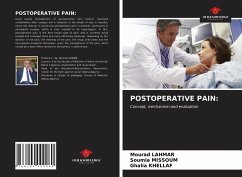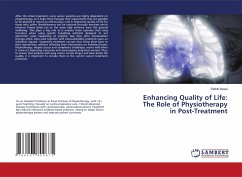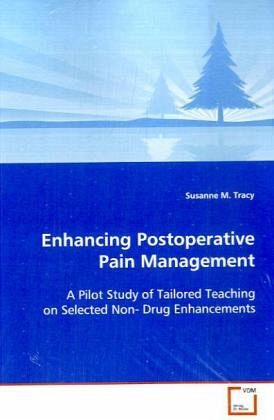
Enhancing Postoperative Pain Management
A Pilot Study of Tailored Teaching on Selected Non- Drug Enhancements
Versandkostenfrei!
Versandfertig in 6-10 Tagen
39,99 €
inkl. MwSt.

PAYBACK Punkte
20 °P sammeln!
The underuse of non-drug methods for pain management is among the top twenty-five issues in patient safety in the United States. Little is known about patients' knowledge and attitudes toward non-drug interventions, especially adults 50 and older. Education is one strategy for improving patient's knowledge and attitudes so as to encourage use of non-drug methods as enhancements to doctor ordered pain management strategies. In this single group, pre-experimental pilot study, a tailored teaching intervention on music, self-guided imagery and slow stroke massage was designed and implemented by nu...
The underuse of non-drug methods for pain management
is among the top twenty-five issues in patient
safety in the United States. Little is known about
patients' knowledge and attitudes toward non-drug
interventions, especially adults 50 and older.
Education is one strategy for improving patient's
knowledge and attitudes so as to encourage use of
non-drug methods as enhancements to doctor
ordered pain management strategies. In this single
group, pre-experimental pilot study, a tailored
teaching intervention on music, self-guided imagery
and slow stroke massage was designed and implemented
by nurses with adults 50 and older who underwent
elective total joint replacement surgery. Results
showed that subjects use all three complementary
methods throughout their hospital stay and were very
satisfied with their pain management. Further,
subjects commented on how having
these options available to them empowered them to
take back some control over the management of their
pain. The study suggests the value of tailored
teaching and offers readers a process by which other
tailored teaching interventions may be developed for
symptom management.
is among the top twenty-five issues in patient
safety in the United States. Little is known about
patients' knowledge and attitudes toward non-drug
interventions, especially adults 50 and older.
Education is one strategy for improving patient's
knowledge and attitudes so as to encourage use of
non-drug methods as enhancements to doctor
ordered pain management strategies. In this single
group, pre-experimental pilot study, a tailored
teaching intervention on music, self-guided imagery
and slow stroke massage was designed and implemented
by nurses with adults 50 and older who underwent
elective total joint replacement surgery. Results
showed that subjects use all three complementary
methods throughout their hospital stay and were very
satisfied with their pain management. Further,
subjects commented on how having
these options available to them empowered them to
take back some control over the management of their
pain. The study suggests the value of tailored
teaching and offers readers a process by which other
tailored teaching interventions may be developed for
symptom management.



